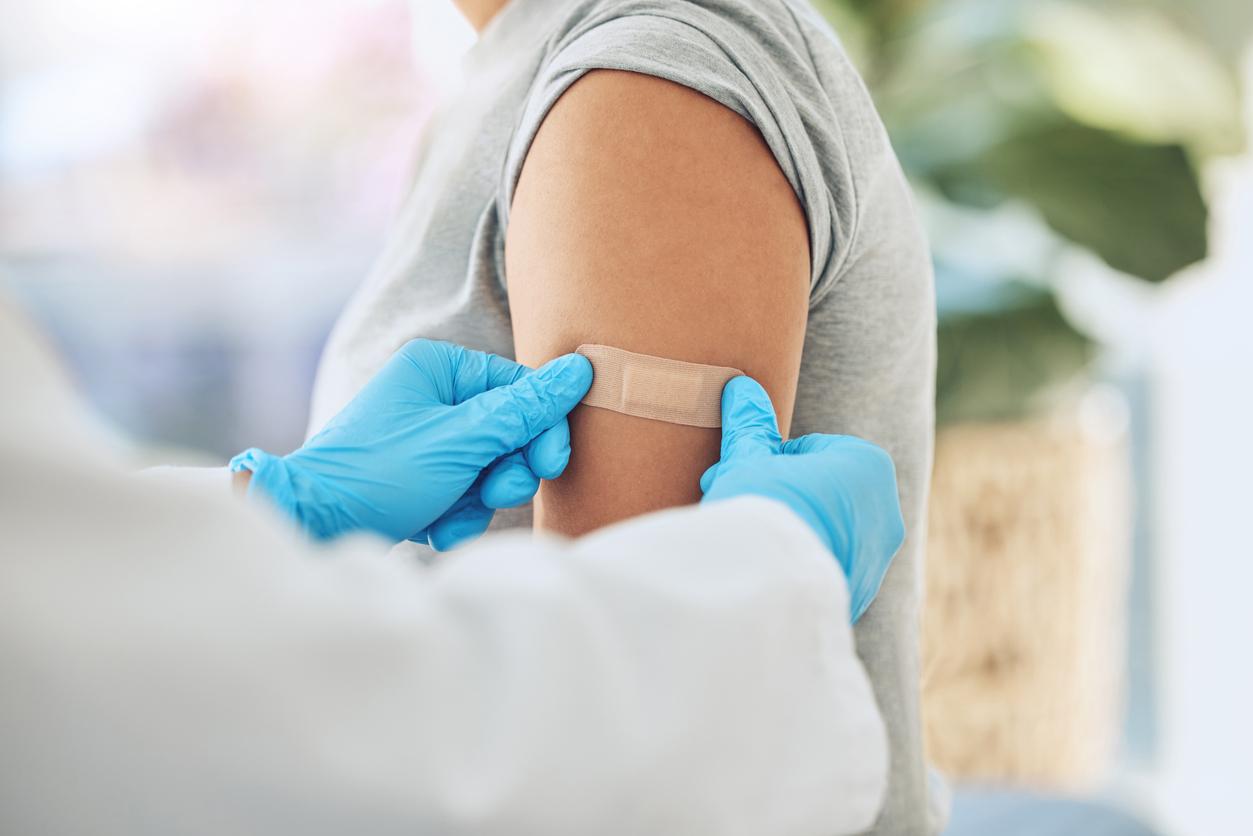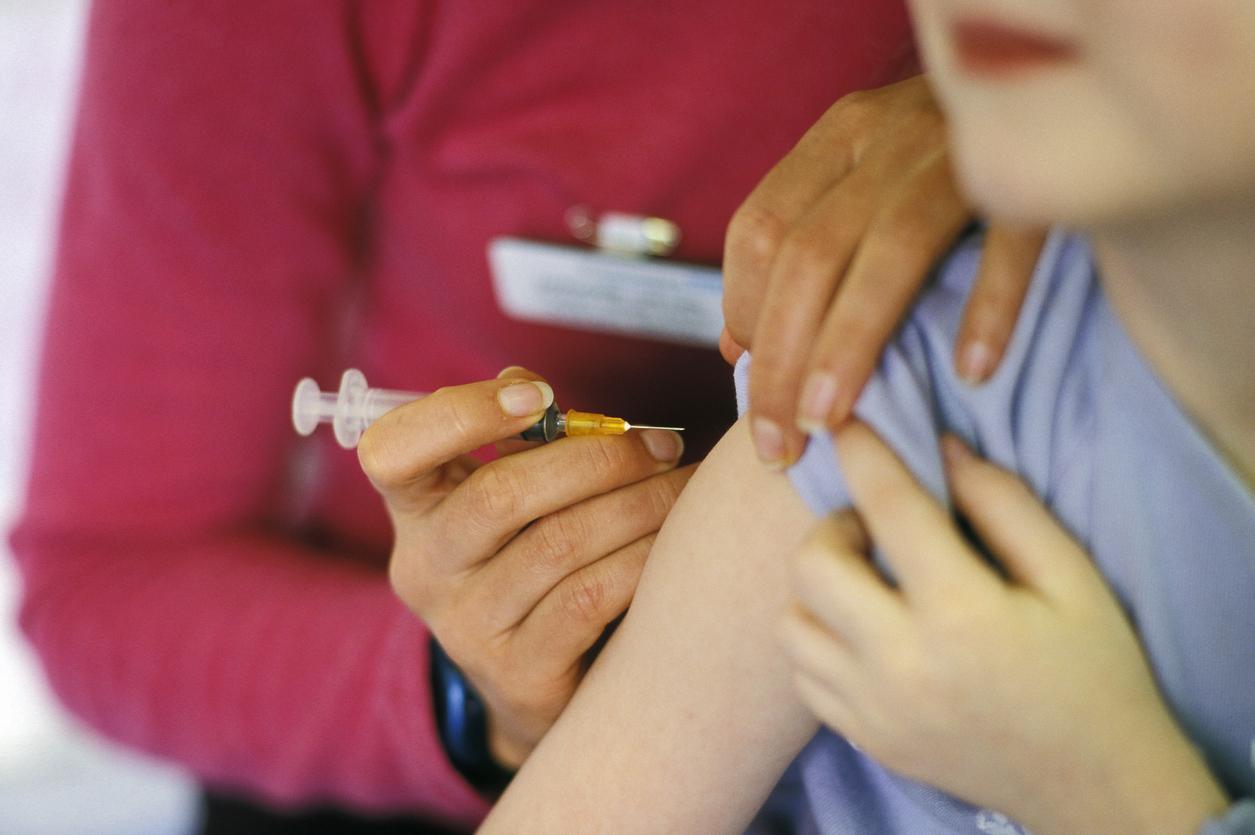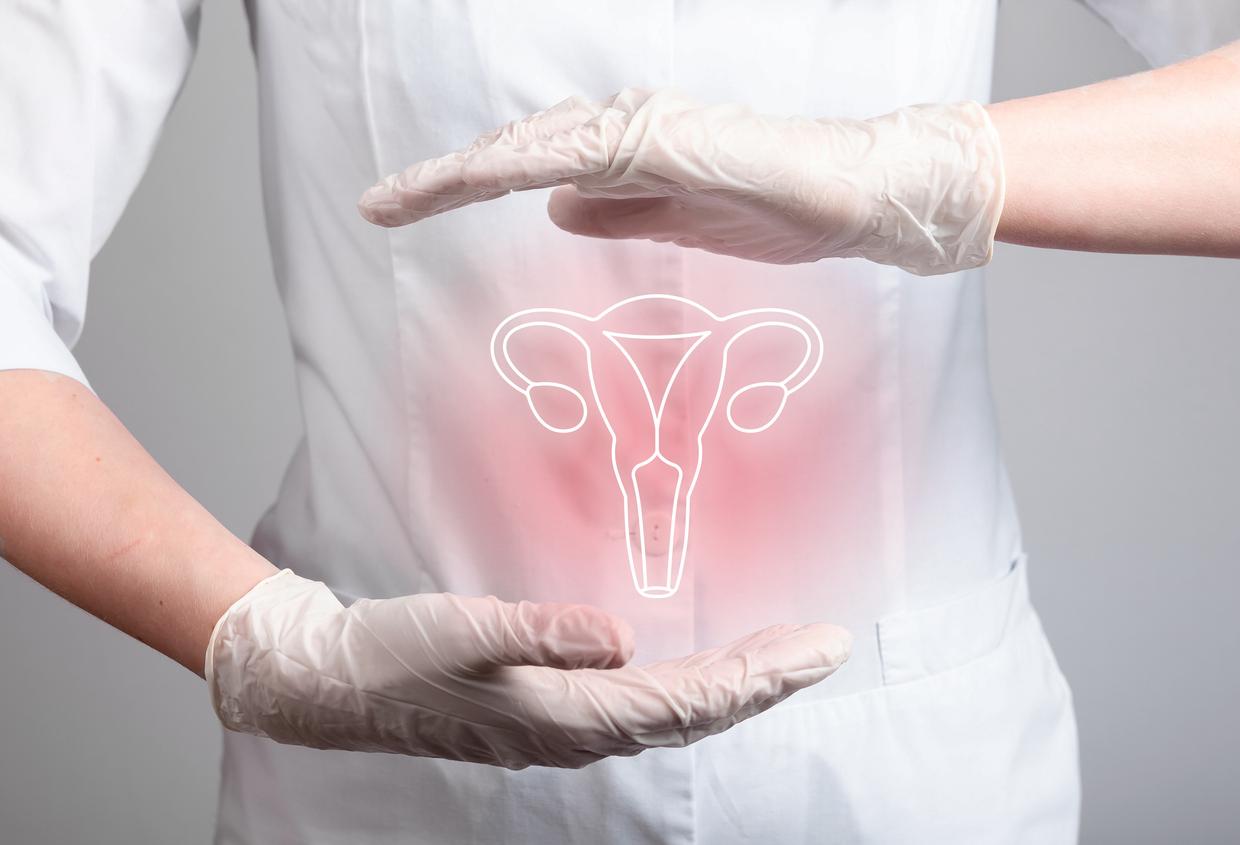The French-speaking Multiple Sclerosis Society has updated its recommendations regarding vaccination of MS patients. Here is the summary for better understanding.

- Seasonal influenza vaccination is recommended in MS patients treated with immunosuppressants or with significant disability. It can be offered to all other patients with MS.
- Under immunosuppressive treatment, it is recommended to be vaccinated against seasonal flu every year, and against SARS-CoV-2 twice a year.
- The immune response to vaccine injections may vary depending on the disease-modifying treatment administered for MS.
Even if the vaccination schedule issued every year by the HAS is applicable to people suffering from MS (Multiple Sclerosis), some small specificities deserve attention.
New features for 2024
According to update 2024 recommendations from the French-speaking Multiple Sclerosis Society (SFSEP), there are certain modifications, in particular for vaccination against SARS-Cov2 (COVID-19).
Indeed, the anti-SARS-CoV-2 vaccination booster is recommended for people at risk of severe disease (people aged 65 or over, MS patients treated with immunosuppressants or with a significant disability, pregnant women), as well as people around them or in regular contact with them.
It is also recommended to perform an additional vaccine injection against SARS-CoV-2 during the primary vaccination for patients treated with anti-CD20.
Precautions regarding treatments
It is also recommended not to take a course of methylprednisolone (crisis treatment for an MS flare-up) in the month following vaccination with a live attenuated vaccine. Conversely, it is preferable not to carry out a live or inert vaccine in the month following a course of methylprednisolone.
Before starting immunosuppressive treatment, the recommendations are in the direction of vaccination against chickenpox in the absence of a history of disease or seropositivity against VZV (Varicella Zoster Virus) and verification with updated protection against hepatitis B, pneumococcus and protection against HPV.
Under immunosuppressive treatment, it is recommended to be vaccinated against seasonal flu every year, and against SARS-CoV-2 twice a year.
Recommendations have been made regarding the time between vaccination with a live attenuated vaccine and the start of a treatment immunosuppressant or its next dose:
-no delay for interferon and glatiramer acetate which can be started on the same day;
-48 hours after injection for plasma exchange;
-2 weeks for dimethyl fumarate, diroximel fumarate and teriflunomide;
-4 weeks for natazilumab and corticosteroid boluses;
-6 weeks for anti-CD20, fingolimod, pinesimod, cladribine, rituximab, ofatumumab and ocrezilumab.
Special features: children and adolescents
Concerning children and adolescents with MS, there are some other recommendations:
-follow the vaccination schedule for the general population which must be up to date before starting any treatment;
-be vaccinated against HPV from the age of 9 if immunosuppressive treatment is planned.
Note that several vaccine injections can be administered on the same day, with a maximum of 3 (including 1 live vaccine), while respecting at least 15 days of interval between 2 injections of inert vaccines if only one vaccine per administration is carried out. . It is recommended to respect at least one month interval between 2 injections of live attenuated vaccines.
Women before, during and after pregnancy
As soon as you want to become pregnant, it is preferable that vaccinations are up to date, in particular the MMR and the chickenpox vaccine which are contraindicated during pregnancy because they are live attenuated vaccines.
Moreover, no live vaccine should be injected in the month following conception.
The inactivated influenza vaccine is recommended before or at the beginning of the epidemic period regardless of the trimester of pregnancy.
Anti-Covid-19 vaccination is possible regardless of the trimester of pregnancy (only the Comirnaty* vaccine is possible in pregnant women under 30).
It is recommended to check immunization against rubella, chickenpox and hepatitis B during pregnancy. In the absence of immunization, it is recommended to vaccinate after delivery before resuming immunosuppressive treatments.
It should be remembered that vaccination against yellow fever is contraindicated during breastfeeding until the infant has reached 6 months of age. But all other vaccines are authorized, including other live attenuated vaccines.
Secure travel abroad
For MS patients (main treatment in place or not) who wish to travel, it is recommended to discuss plans to travel abroad with their doctor as soon as possible.
If the trip takes place in subtropical or tropical regions, the patient is invited to consult his neurologist or a vaccination center in order to evaluate the benefit-risk ratio of the specific vaccinations and prophylactic treatments necessary in the country of destination. It is recommended to update the vaccinations required for travel at least 15 days before departure.
Likewise, a discussion with the neurologist should be considered regarding a possible temporary cessation of immunosuppressive treatment in the event of an absolute necessity for a live attenuated vaccine. In this regard, international vaccination centers are of great help.
Small clarification: the yellow fever vaccine can be used in MS patients outside of any immunosuppressive treatment.
Recommendations unchanged in 2024
Some measures already existed, but can be recalled.
It is always strongly recommended to update your vaccinations according to the current vaccination schedule as soon as possible after the diagnosis of MS and before the start of immunoactive treatment (Recommendation of the High Council of Public Health). The immediate entourage (close) of a person immunocompromised by their treatment is advised to have up-to-date vaccinations, to be vaccinated against seasonal flu and, in the event of negative serology, against chickenpox.
If the person’s vaccination status is not known, there is no need to carry out control serologies. It is best to revaccinate completely.
Vaccination against seasonal influenza is also recommended in MS patients treated with immunosuppressants or with significant disability. It can be offered to all other patients with MS.
Point of vigilance which does not change: under immunosuppressant or in a situation of immunosuppression, a person suffering from MS should not be injected with live attenuated vaccines.
The immune response to vaccine injections may vary depending on the disease-modifying treatment administered for MS. Indeed, this response is not reduced under interferon beta, Glatiramer acetate, fumarates (but no data with Diroximel or lymphopenic people), teriflunomide, natalizumab, alemtuzumab, cladribine. On the other hand, it is reduced for mitoxantrone, S1P receptor modulators, and anti-CD20.


















